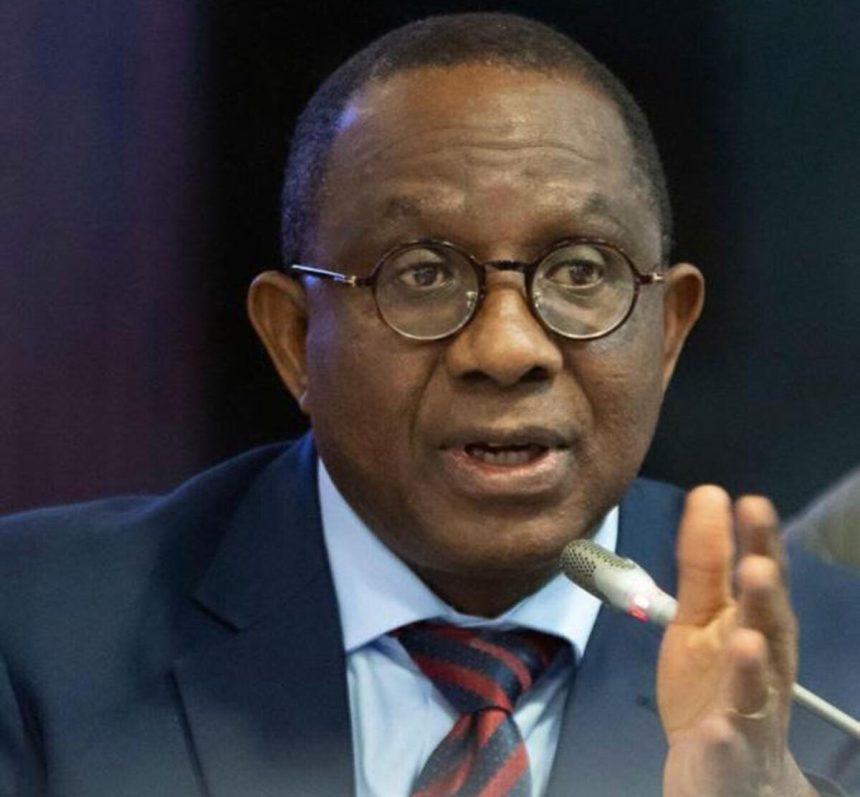Nigeria’s push for industrial development has been tragically undermined by decades of systemic failure, institutional decay, and the abandonment of over 11,000 government projects between 1971 and 2011, according to Professor Banji Oyelaran-Oyeyinka, Senior Special Adviser to the President on Industrialisation at the African Development Bank (AfDB).
Delivering a keynote address at the 55th Anniversary of the Department of Chemical Engineering, Obafemi Awolowo University (UNIFE), Ile-Ife, Prof. Oyelaran-Oyeyinka painted a sobering picture of Nigeria’s economic decline, urging urgent action to reverse the nation’s downward spiral. The lecture, titled “Rebuilding the Broken Wall: Reviving National Capabilities for Economic Development in Nigeria”, drew standing ovations from scholars, alumni, and policy stakeholders, who described it as one of the most impactful interventions in recent memory.
“In 1980, Nigeria’s GDP per capita was six times that of China. Today, China’s exports alone stand at $3.58 trillion, eclipsing the GDP of the entire African continent,” he said, drawing stunned silence from the audience. “This is not just a reversal of fortunes. It is the story of institutional betrayal.”
The President’s SSA pointed to thousands of abandoned government projects, most notably the $5 billion Ajaokuta Steel Complex, as evidence of Nigeria’s repeated failure to build and sustain industrial capacity. He argued that despite the country’s rich endowment in natural and human resources, it continues to suffer due to leadership that prioritises personal gain over national purpose.
“Our problem is not talent or resources, it is visionless leadership. The pursuit of self-aggrandisement is antithetical to national progress,” he declared, urging a paradigm shift from patronage politics to purpose-driven governance.
Critiquing the collapse of Nigeria’s academic and research systems, Oyelaran-Oyeyinka lamented the decline of formerly prestigious institutions like UNIFE. “This university was once a magnet for Africa’s brightest minds. Today, it mirrors a national tragedy: dilapidated labs, underfunded departments, and a mass exodus of talent.”
He called attention to the paradox of thousands of Nigerian engineers and scientists trained at public expense who are now serving foreign economies while local industries remain stagnant. “We extract; they refine. We export raw minerals; they manufacture chips, phones, and cars. Africa’s wealth is draining away not because we lack resources, but because we lack structured, institutionalised knowledge.”
Drawing from his acclaimed book Reversal of Fortune, the development economist lamented what he described as Africa’s “real resource curse”—not oil or minerals, but the chronic deficiency of knowledge systems connected to economic development.
Furthermore, he quoted the Bible book of Nehemiah to stir the national conscience: “Let us rebuild the wall of Jerusalem, and we will no longer be in disgrace.” Echoing this, he challenged Nigerians not to be remembered as the generation that stood by while the nation crumbled, but as the one that rose to rebuild it.
“Let us rebuild the wall. We must reclaim our dignity through the collective renewal of our industrial and knowledge systems.”
ALSO READ TOP STORIES FROM NIGERIAN TRIBUNE
WATCH TOP VIDEOS FROM NIGERIAN TRIBUNE TV
- Let’s Talk About SELF-AWARENESS
- Is Your Confidence Mistaken for Pride? Let’s talk about it
- Is Etiquette About Perfection…Or Just Not Being Rude?
- Top Psychologist Reveal 3 Signs You’re Struggling With Imposter Syndrome
- Do You Pick Up Work-Related Calls at Midnight or Never? Let’s Talk About Boundaries







